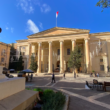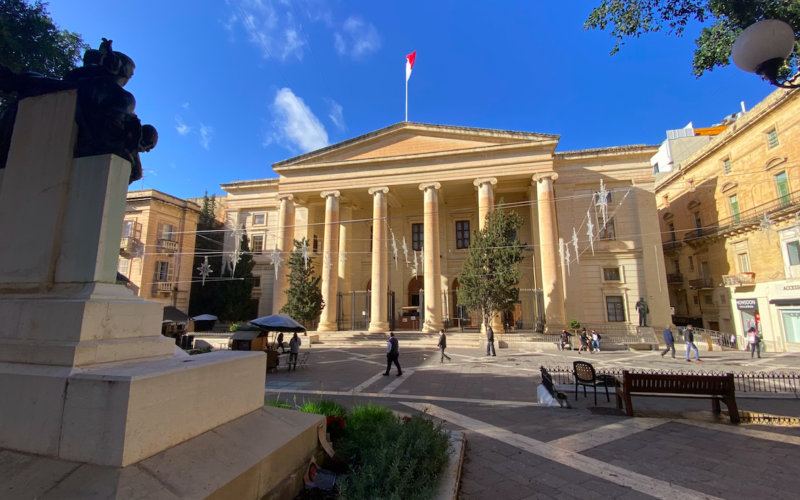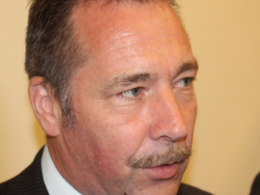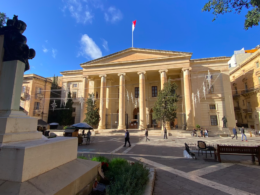In his recent remarks at the opening of Malta’s new forensic year on 1st October, Chief Justice Mark Chetcuti issued a robust defence of the judiciary’s spending on foreign consultants, particularly in relation to the ongoing Vitals inquiry. This inquiry, which has already cost Maltese taxpayers a staggering €11 million, has triggered a wave of public concern over whether such spending is warranted and whether the judiciary is operating with the necessary oversight. The Chief Justice’s statements have set the stage for a debate on whether this spending is truly in the public interest, or if it represents a case of unchecked extravagance.
Justifying the Spending
In his speech, Chief Justice Chetcuti addressed the criticisms surrounding the judiciary’s reliance on foreign experts, defending the need for such services in highly complex cases. He argued that due to Malta’s small size and limited expertise in niche areas like forensic accounting and artificial intelligence, engaging international specialists is not a matter of choice but necessity.
“It is not out of caprice that we engage foreign experts,” Chetcuti declared, stressing that these external consultants bring invaluable expertise in dealing with intricate criminal cases, particularly those involving white-collar crime. According to the Chief Justice, the complexity of these investigations requires specialised knowledge that is often unavailable locally.
However, Chetcuti’s defence has sparked further controversy, as he admitted that there is no limit on what these foreign experts can charge. He asserted that while expenses must be authorised by the magistrate and coordinated with court administration, the ultimate aim is to ensure that justice is delivered, even if it comes at a high financial cost to the taxpayer. This statement, while perhaps well-intentioned, has done little to allay concerns about the sheer volume of public money being spent without clear limits or scrutiny.
The Vitals Inquiry: A Price Too High?
The inquiry into the Vitals Healthcare deal, which has cost Maltese taxpayers €11 million, has brought the issue of unchecked spending into sharp focus. Many have questioned whether this level of spending is justified, particularly when there appears to be little accountability or transparency surrounding how these funds were being used. Did anyone question the experts’ bills?
The inquiry has been mired in controversy, with critics pointing out the irony of vast sums being spent to investigate a deal that is itself claimed to be rife with financial mismanagement. As Justice Minister Jonathan Attard confirmed the staggering cost of the inquiry in Parliament, many began to ask the uncomfortable question: are Maltese taxpayers footing the bill for investigations that are as costly and opaque as the deals they are probing?
Value for Money and Lack of Governance
The crux of the public’s concerns revolves around the judiciary’s apparent exemption from Malta’s strict public procurement rules. Typically, public spending must adhere to rigorous guidelines to ensure transparency, accountability, and value for money. Yet the judiciary seems to operate in a different realm, where these rules do not apply.
Reports have surfaced suggesting that little due diligence is conducted when hiring foreign experts, and this has only fuelled concerns about the potential for abuse. A case in point is the recent scandal involving Samuel Sittlington, a foreign consultant hired for the Vitals inquiry, who reportedly used his position to solicit business from the Malta Police Force. Such revelations have led to accusations that court experts are operating in an unregulated space, with little oversight or governance in place to ensure ethical conduct.
Who is Watching the Watchdogs?
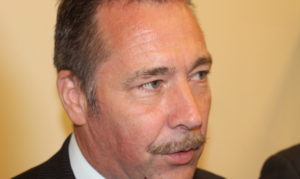
The Sittlington incident has underscored the need for stricter oversight of court-appointed experts. If the very individuals hired to investigate financial scandals are themselves embroiled in questionable practices, it raises a fundamental question: who is holding these experts accountable? With no external body scrutinising the judiciary’s spending on consultants, the public is left to wonder whether these experts are providing value for money, or whether the system is open to exploitation.
In the case of the Vitals inquiry, the lack of oversight not only casts doubt on the integrity of the investigation but also undermines public confidence in the judiciary. For a system that is meant to uphold justice, the absence of proper governance is a troubling sign that reform is urgently needed.
Time for Reform?
Chief Justice Chetcuti’s spirited defence of the judiciary’s spending on foreign experts has brought to light important issues of governance and accountability. While there is no doubt that specialised expertise is sometimes required for complex cases, the lack of transparency in the selection and compensation of these experts raises serious concerns. Without proper oversight, the judiciary risks eroding public trust and opening the door to potential corruption.
The case of Samuel Sittlington has only amplified calls for reform. The judiciary must be held to the same standards of accountability as other public institutions. To protect the integrity of Malta’s legal system, there must be greater scrutiny of how public funds are spent on court experts, and safeguards must be introduced to ensure these expenditures are justified and transparent.
For those concerned about unchecked public spending or affected by the ongoing inquiries, now is the time to voice your concerns. Share this article with your friends or on social media and help keep the conversation going.


